
The creation of workplace dramas is becoming more and more thankless, which is a common consensus in the industry. On the one hand, it is not easy to enter the sinking market for workplace dramas that coexist with urban style and professionalism; The main domestic workplace drama. Twenty or thirty years ago, we imagined the white-collar life in the metropolis in tvb workplace dramas, and now all this has become a reality, but the real situation of "996" and "community animals" also broke the audience's fantasy imagination of workplace life. It is no longer necessary to imagine something through workplace dramas.
As a branch of workplace dramas, medical dramas also face such a dilemma. Whether it's "Thank You, Doctor" with a lot of traffic, or "Everything About Dr. Tang" with a relatively outstanding reputation, it can't be called out of the circle. The same is true for "White Castle" this time. From the broadcast data alone, it is mediocre, although it has a good point of view.
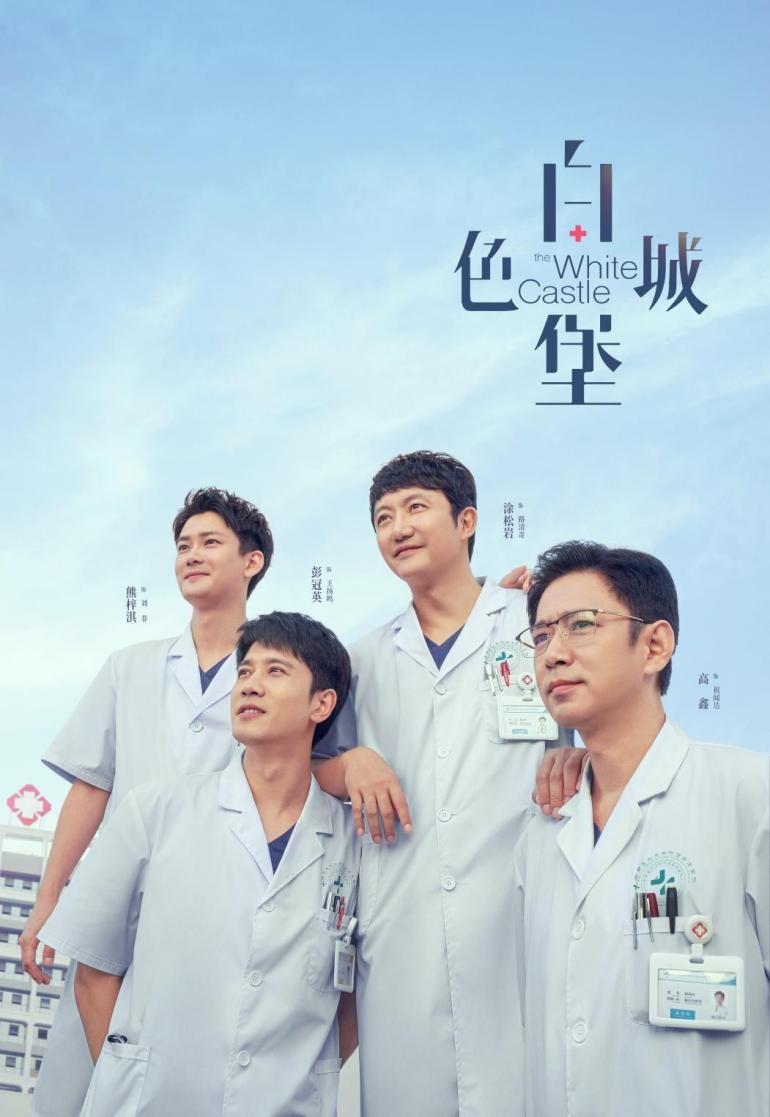
"White Castle" poster
If the screenwriter has no medical experience, it is too difficult to write a good medical drama. The interlacing is like a mountain, and the medical drama requires higher professionalism. The screenwriter of "Everything About Doctor Tang" majored in clinical medicine when he was in college; "White Castle" also has a good professional foundation. It is adapted from Wang Chenggang, deputy chief physician of the emergency critical care center of Beijing Anzhen Hospital Novel of the same name. "White Castle" is written by Zhang Lei, who once won the best screenwriter of Magnolia, and Yang Wenjun, the director of "Crane Huating", is the chief director. From the original work to the team, they are more reliable.
Professionalism is only the most basic premise of medical dramas. At present, the creation of medical dramas has entered a bottleneck. In addition to the overall dilemma of the workplace drama category, the medical drama itself has also entered the bottleneck stage of creation.
When a medical drama comes out, the audience can basically predict its narrative mode: through each unit case, to reflect the growth of the doctor, the hard work of the doctor and the greatness of the doctor, and also reflect the sentient beings of the patient through each case. The relationship between doctors and patients has been revealed and thought about.
This narrative mode is the result of dancing in shackles, because there have always been some creative restrictions on medical dramas. For example, the conflict between doctors and patients cannot be deeply explored, and the medical system cannot be talked about too much. It is also necessary to ensure the positive image of the doctor group as a whole. The creation of medical dramas is tied up, and it is inevitable to enter a stereotyped but safe creation paradigm. For example, from "Thank You Doctor", "Everything About Dr. Tang", to "White Castle", the plots are basically connected with unit cases, and then they tell the stories of patients and the hard work of doctors.
The embarrassing thing is that sometimes even the case will hit the topic. For example, there is such a case in episode 9 of "White Castle", a young man who was playing basketball suddenly fainted, his blood oxygen dropped very quickly, and the patient's right lung had no breath sound. The doctor hurriedly asked the patient's classmate if the patient had the habit of chewing gum when playing basketball. Sure enough, the gum stuck the glottis, which caused the risk of suffocation.
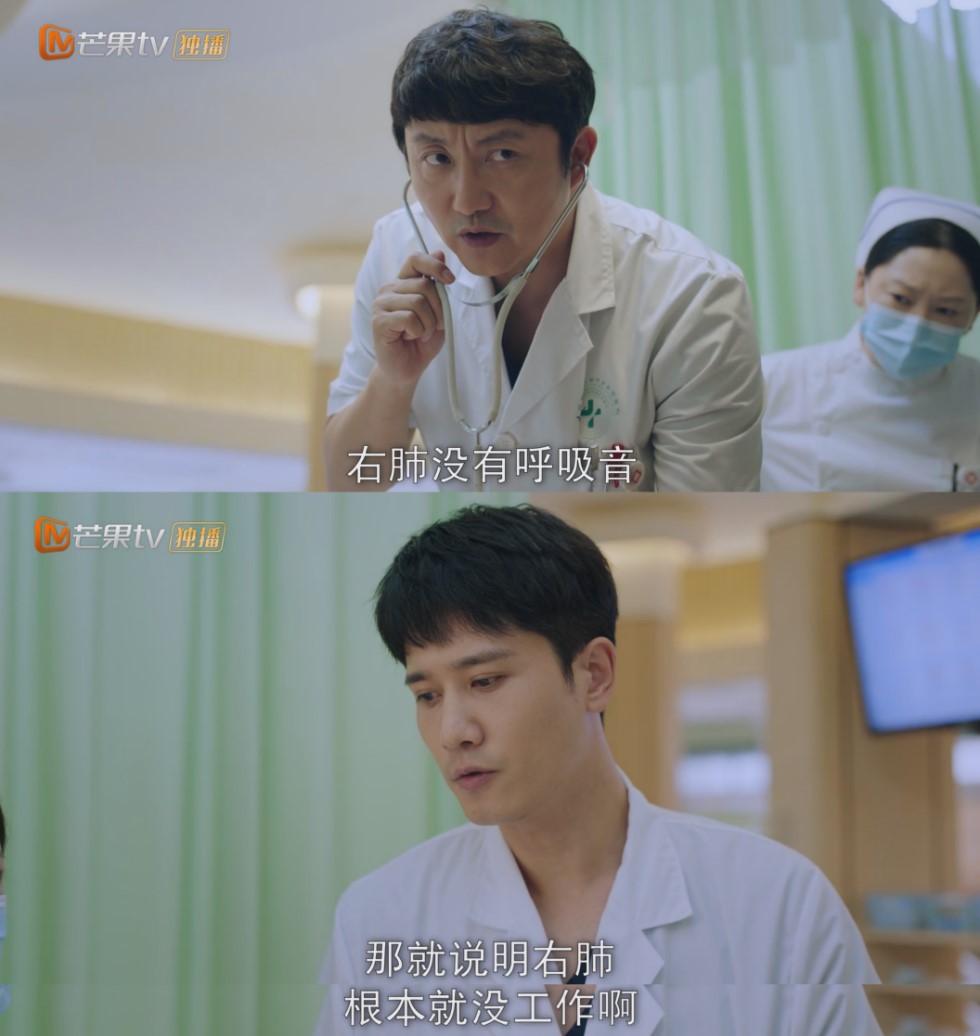
Do not chew gum during strenuous exercise
This case originally also appeared in Episode 4 of "Thank You Doctor". In the two plays, the doctor's lines to analyze the condition and rule out the cause are highly similar.
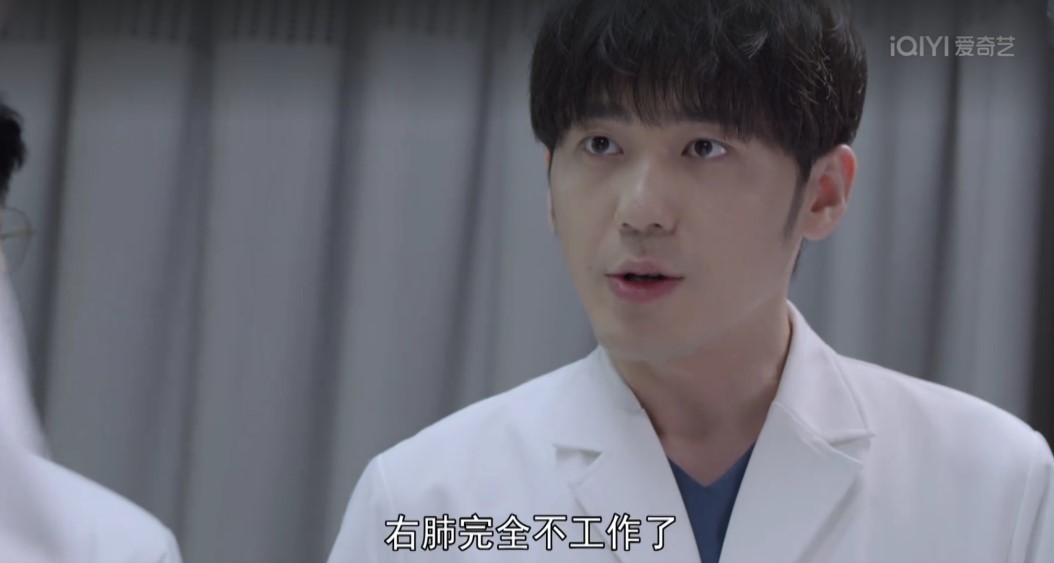
"Thank You Doctor" has a similar case
Although "Thank You Doctor" was broadcast early, don't say that "White Castle" borrowed it, because such a case was indeed recorded in Wang Chenggang's original novel (published in 2018), but it was "Thank You Doctor" There is no such case in the original "ICU 48 Hours". It is not clear, then, whether the writing team of "Thank You Doctor" read the novel "White Castle" when collecting the cases.
This is the objective dilemma of domestic medical dramas: Even if the screenwriter team can collect dozens of cases during the creation stage, under various restrictions, there are only so many cases that can be picked, deleted, deleted, modified and modified later.
The novel "White Castle" has a lot of ink on the complexity of interpersonal relationships in the workplace of the hospital, the inadequacy of the medical system, the deadlock of doctor-patient disputes, and the helplessness of doctors under the medical system, all of which have been "purified" in the drama version. Also because the plot cannot effectively reflect on the medical system, the drama’s presentation of the relationship between patients and doctors is basically what can be said, such as doctors are great, some patients’ experiences are embarrassing, and some patients have great feelings for doctors. There are a lot of misunderstandings, etc.
Therefore, today's domestic medical dramas must be good-looking, and they cannot be limited to the conservative and similar presentation of the medical part. There must be information increments beyond the medical field, so that the audience can have emotional investment, substitution or compensation.
"White Castle" has a good viewability. In the final analysis, it successfully portrays the image of the "Four Heroes of the Emergency Department". (Gao Xin), Liu Fei (Xiong Ziqi). "White Castle" tells the situation of four idealists, but the field of their activities is the medical field.
The dominant player in the play is Wang Yangming. As soon as he appeared on the stage, it was easy for young audiences to be substituted: if young people from other provinces drifting in the metropolis cannot find a job smoothly, their household registration must go back to their place of origin; like most young people who have just left the ivory tower, he has some Young and immature, but a newborn calf is not afraid of tigers, dares to fight, not afraid of losing, and what is even more rare is that he has a pure heart.

Wang Yangming (played by Peng Guanying)
What kind of original intention? Due to the particularity of the profession of emergency physicians, they have witnessed too many deaths. When many novice doctors encounter the death of a patient for the first time, they may be as frightened as Wang Yangming and Liu Fei, and feel the horror of death. "A person who was thinking, moving, and even talking to you a few minutes ago breathes out his last breath, and then gradually becomes cold and becomes a lifeless shell."
However, witnessing death is the "norm" of the medical profession. The attitude of many doctors towards death will also change from shock and distress at the beginning to calm and calm. As Zu Wenda said, "Since you want to do this job, you have to find a way to convince yourself that life and death are a normal part of this job. Remember, we are not gods, and we cannot save Live every patient", the doctor must learn to get out of the uncomfortable feeling, otherwise "you will suffer great pain, this kind of pain makes you have no courage to face the next patient, and you can't even do this job anymore. Accept Be realistic, accept the fact that you can't do anything about it, and don't get emotional about it."
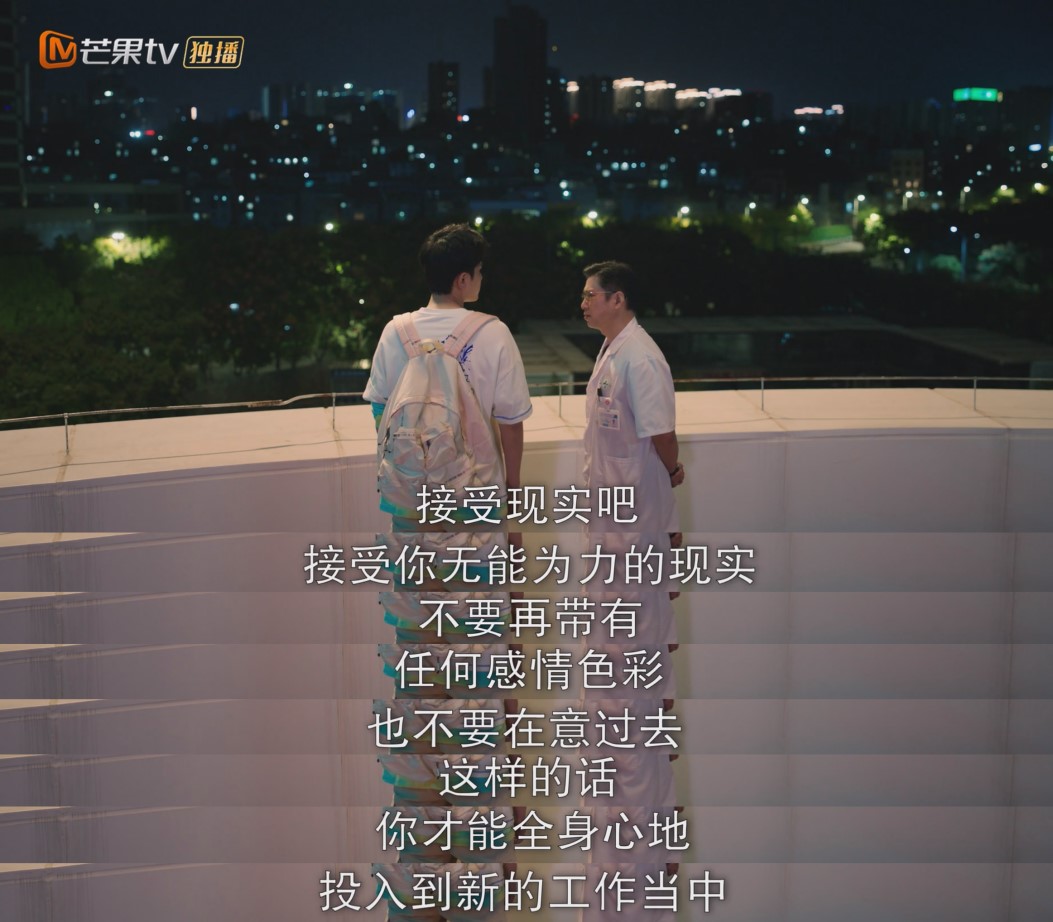
Doctors have learned to accept the death of their patients
This is a fact. This is not to say that doctors have become insensitive, but that it is indeed impossible for doctors to save everyone, and doctors must move on. It's just that it cannot be ruled out that some doctors are accustomed to death or indifference to inaction.
So Wang Yangming's answer is, "At least not now. I studied medicine because I had emotions in it, because I cared. If I could not care, I would not choose this career." Wang Yangming cares about the death of each patient and sympathizes with the pain of his relatives. Only the existence of this care and pain will make him work harder to save more people. This is Wang Yangming's original intention. To use the widely circulated words, it is "this little fish cares".

Wang Yangming is willing to bear every pain, because he cares about
"White Castle" successfully restored the greatest expectation in each of us: we hope to meet a doctor like Wang Yangming. Regardless of our occupation or status, we may be patients or family members of patients. The existence of doctors like Wang Yangming will really bring us great comfort.
The advancement of the plot has also repeatedly strengthened the purity and preciousness of Wang Yangming's innocent heart. In his values, doctors are to save people, and saving people is always the first priority. Even if saving people may cause "trouble" to doctors, Wang Yangming still puts saving people first.
For example, if the patient does not have an operation immediately, he will be unable to survive immediately; but if the operation is to be performed, the hospital has certain procedures to follow, for example, the intern in the ward has no right to dispose of it, and consultation is required for the tracheotomy. For example, the operation has great impact on the environment. High requirements, such as the consent of family members for some operations...
If the doctor violates these procedures—although your starting point is to save people, once the patient has any consequences, the doctor will have to bear the responsibility, and the family may be sued by the family, lose money, or be expelled. Ask yourself, if we are faced with the same situation, how many people can fight like Wang Yangming?
"White Castle" not only satisfies the audience's expectations - we are eager to meet a doctor like Wang Yangming, but it also successfully arouses the audience's curiosity about an idealistic situation - what will people like Wang Yangming encounter? The plot abuses Wang Yangming from time to time, making the audience worry about his future.
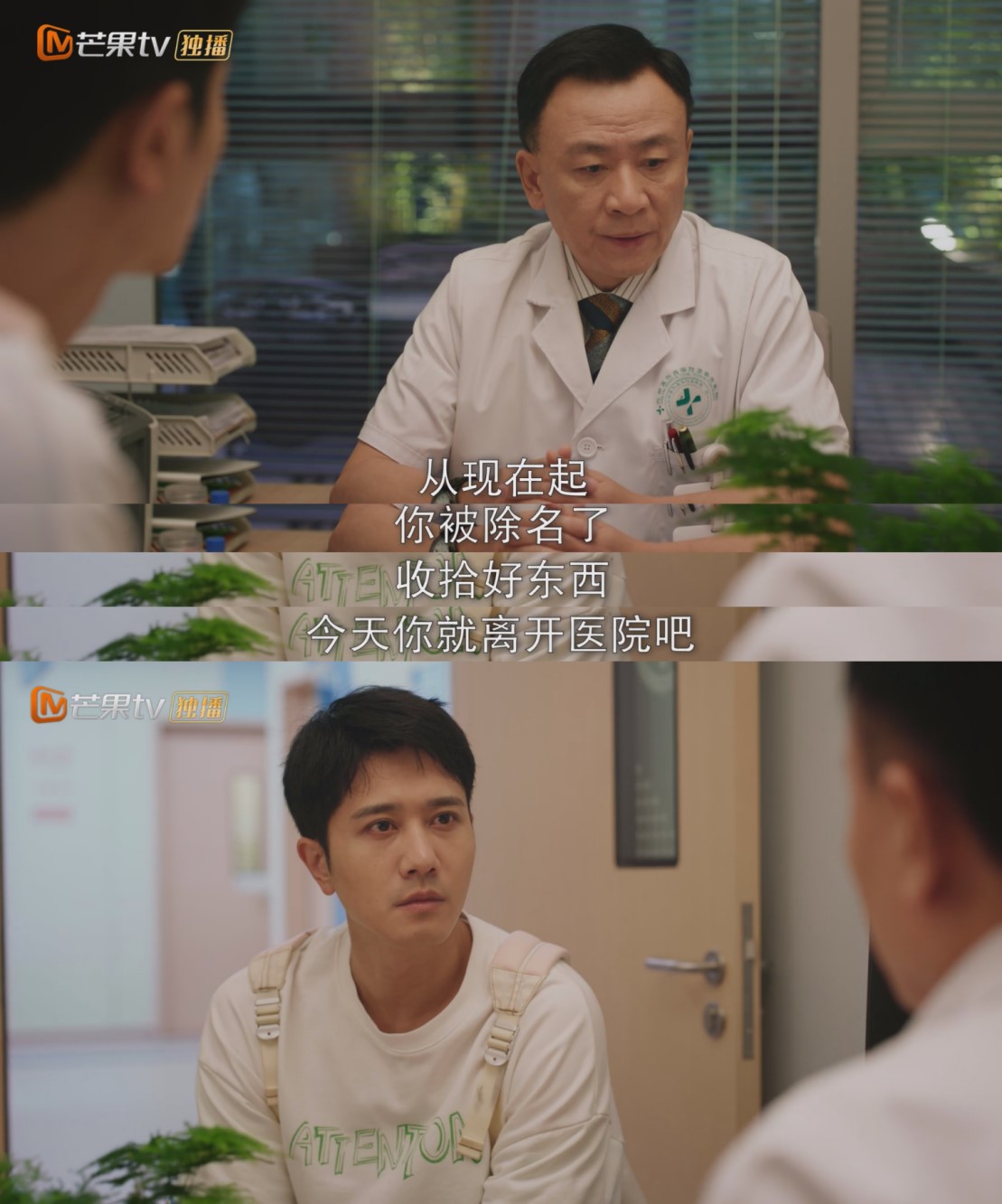
Two rookie doctors have moments of being abused
But "White Castle" is not pathos, it does not show how an idealist is crushed by reality; "White Castle" is idealism and romanticism, it shows how an idealist shines and how it infects him How to get the protection of the people around you, how to make more people become idealists...
In the play, almost everyone around Wang Yangming is silently helping him. Although the master, Louis, was very venomous towards Wang Yangming, every time Wang Yangming got into trouble for saving others, Louis always ran for Wang Yangming. Even, Louis was originally hired by a private hospital with a high salary. When Wang Yangming might be fired for saving lives, Louis decided to give up his high-paying job in a private hospital, "I have to go back and save him."
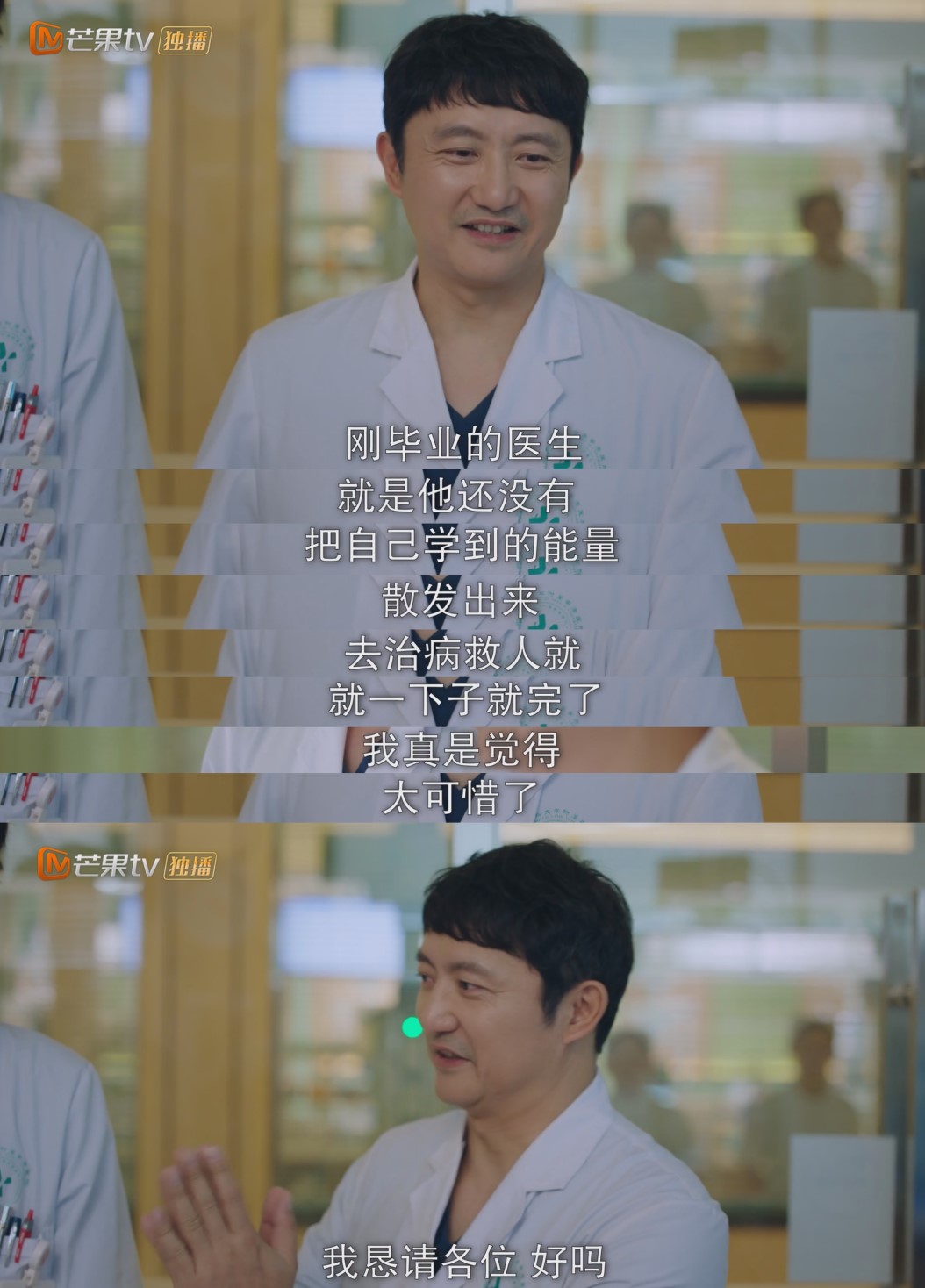
Master Louis begged the patient's family to give up the responsibility of Wang Yangming who "saved people"
Zu Wenda, who has always been a Buddhist, also pleaded with the leader when Wang Yangming might be fired, "There is something about him that makes people feel that if such a doctor is driven out of the hospital, everyone will be chilled."
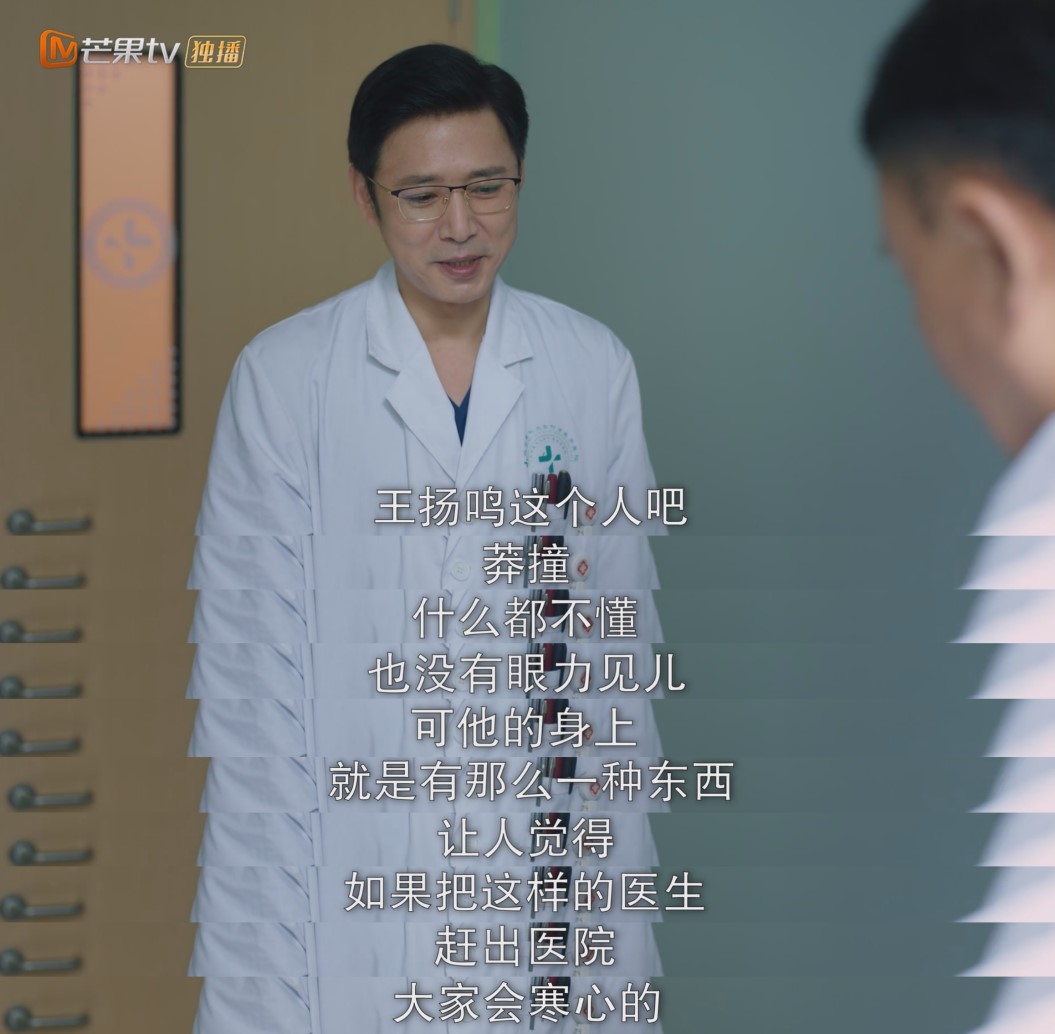
Wenda, the ancestor of Buddhism, also pleaded for Wang Yangming
The medical boss Liu Binhe (played by Zhang Zhijian), who had only had brief contact with him, was also moved by his sincerity, "A doctor on probation can do everything for his patients, why can't I try my luck?"
Even Liu Fei, a competitor who can only keep one of the two during the trial period, is willing to help him, "If he leaves, Ankang will be a bit boring." In the subsequent case of rescuing a girl who was victimized by domestic violence, Liu Fei's actions also proved that he is also an idealist who keeps his original heart.
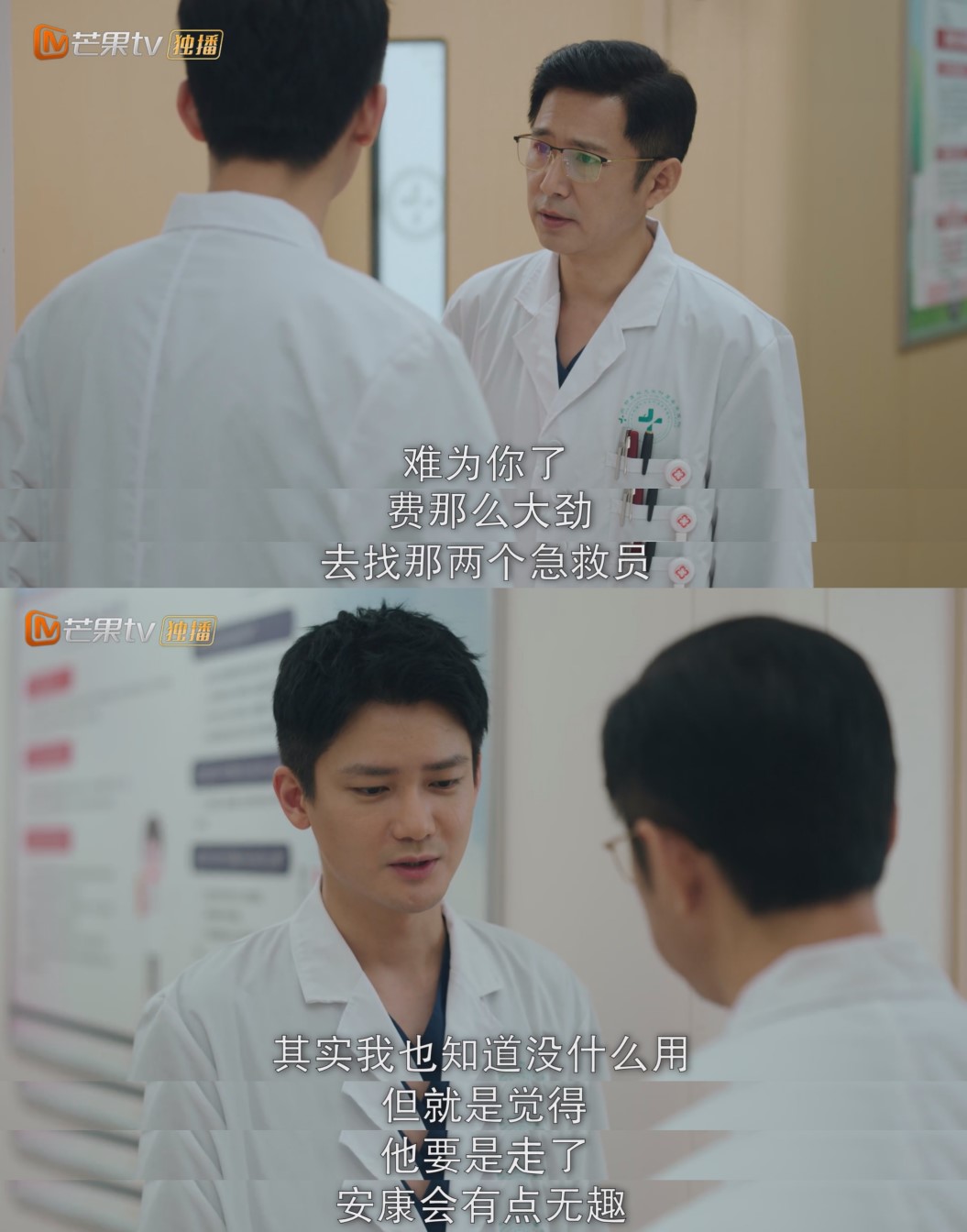
Competitors are also on his side
What's even more fantastic is that Wang Yangming and Liu Fei were able to save themselves from danger every time they came to the point of being expelled. In the end, both of them stayed on smoothly and became official doctors. It was originally agreed that two people would stay and one would stay, but it was so lucky that the hospital specially approved one, and the department kept one. Their kindness gets the best care...
Going back to real life, we know that we are far away from a noble personality like Wang Yangming. The probability of meeting someone like Wang Yangming is not high, and not every Wang Yangming can walk with so many lovely partners—they may Alone, sacrificed...
Therefore, beyond the shell of a medical drama, "White Castle" is essentially a romantic story about idealists. The more scarce things are in reality, the more we can get a kind of imaginary satisfaction in "White Castle".

The "Four Heroes of the Emergency Department" are very loving
In any case, "White Castle" demonstrates an ideal personality, an ideal interpersonal relationship (not limited to the doctor-patient relationship). This also provides a way to solve the problem for the creation of other workplace dramas and medical dramas. And if this drama can make some people yearn to become Wang Yangming, or are willing to protect Wang Yangming in life, that would be great.


